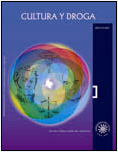Authors
Abstract
The purpose of this essay has been to work the in-depth interview technique, specifically in the field of addictions, within the framework of the qualitative paradigm and subjectivity as its theoretical support, citing the internal and methodical dynamic of the interview which implies: the ethno-sociological perspective, the speakinglistening therapeutic space, the induction process, empathic relationships, holistic environment and the closing of the interview. The documental testimonial method has been applied. There are many consumers who have been devoted to reconstruct their lives trying to return to society. Investigating this phenomenon from the vision of its own protagonists is the best source. For this reason, this essay pretends to narrate some experiences obtained during the process of interviewing consumers where the ability of the interviewer, the knowledge about the problem, as well as the documents review about this technique, play a fundamental role for the success of the investigation.
Keywords
References
________. (2002). El Cuidado Esencial. Ética de lo Humano. Compasión por la Tierra. Madrid: Trotta.
Bolívar, A. et al. (2001). La Investigación Biográfico-Narrativa en Educación. Enfoque y Metodología. Madrid: La Muralla. CAPO.
Ferrarotti, F. (1997). Storia e Storie di Vita. 3 ed. Roma, Italia: Saggi Tascabili Laterza.
Habermas, J. (1997). Teoría de la Acción Comunicativa II. España: Taurus.
Hernández, R. (2003). Metodología de la Investigación. 3 ed. México: McGraw-Hill.
Martínez, M. (2006). Ciencia y Arte en la Metodología Cualitativa. 2 ed. México: Trillas.
Morse, J. (2005). Asuntos Críticos en los Métodos de Investigación Cualitativa. Colombia: Editorial Universidad de Antioquia.
Mujica, M. (2002). Entrevista a Profundidad: “Experiencias Doctorales”. VI Cohorte del PIDE y Experiencias en TIC, entre otros. [Documento en línea] Disponible: http://pide.wordpress.com/2008/05/02/entrevista-a-profundidad/ [Consultado el 12 de mayo de 2010].
Ruiz, J. (1994). Estilos de Vida e Investigación Social del Narcohábito. Encuentros Municipales sobre Drogodependencia. GobiernoVasco, Bilbao, España.
Salazar, M. (2003). De la Adicción a la Reincorporación Social. Valencia-Edo, Carabobo: Dirección de Medios Universidad de Carabobo.
Shaw, D. (1988). Nueva Narrativa Hispanoamericana. Madrid: Cátedra.
Taylor, S. & Bogdan, R. (2000). Introducción a los Métodos Cualitativos de Investigación. Buenos Aires: Paidós.
Zemelman, H. (1992). La Educación en la Construcción de Sujetos Sociales. La Piragua, 7. Santiago de Chile: Ceaal.

 PDF (Español)
PDF (Español)
 FLIP
FLIP

















